A. Principles of General Education origninally passed by IU Northwest Faculty Organization 3/24/2006, substantially modified 04/19/2024
The following general education principles guide the achievement of excellence in undergraduate education at IUN. They describe university level capabilities, knowledge across disciplines, awareness of diversity and ethics that we believe every graduate of an IU Northwest baccalaureate degree program should attain. These principles embrace learning experiences that prepare students for lifelong learning, ethical practices, successful careers, and effective citizenship.
| Principle | Definition |
1. Foundations for Effective Learning and Communication | Fluency in reading, writing, and oral communication; mastery of the basic principles of logical, mathematical, and scientific reasoning; literacy in information resources; and social consciousness/diversity. |
2. Broad and Integrative Knowledge | Mastery of the core concepts, principles, and methods in arts and humanities, the social and behavioral sciences, and the mathematical, physical, and life sciences. |
B. Outcomes for each of the Domains
Domain 1: Foundations for Effective Learning and Communication
Domain 2: Broad and Integrative Knowledge
C. General Education Assessment plan
Current assessment plan elements for 2 Domains of General Education, adopted 2024
- Outcomes will be measured annually (across a 3-year-cycle) starting with fall 2025.
- The Associate Vice Chancellor for Academic Affairs will serve as an ex-office member of the General Education/Assessment Committee.
- All courses listed as meeting the general education requirements will be assessed. Letters will be generated in Academic Affairs with guidelines and deadlines.
- Departments/Programs will design their own measures and collect results. We recommend procedures suggested by Walvoord (2006) for design and analysis.
- Plans and reports of results will be sent to the Office of Academic Affairs and campus assessment coordinator. The assessment coordinator will consult regularly with the General Education/ Assessment Committee to insure that the plans document continuous improvement. The General Education/Assessment Committee will recommend policy changes or process changes to facilitate this continuous improvement. They will provide feedback on the results to facilitate continuous improvement processes.
Previous assessment plan elements for foundation courses of Principles 1-5
- Outcomes will be measured annually (across a 2-year-cycle*) starting with fall 2022. (Outcomes will be measured annually (across a 4-year cycle), starting with fall 2010, using methods recommended by Walvoord (2006).)
- The Associate Vice Chancellor for Academic Affairs will serve as an ex-office member of the General Education/Assessment Committee.
- Courses to be assessed will be determined by the General Education/Assessment Committee in consultation with the Office of Academic Affairs. Letters will be generated in Academic Affairs with guidelines and deadlines.
- Departments/Programs will design their own measures and collect results. We recommend procedures suggested by Walvoord (2006) for design and reporting.
- Plans and reports of results will be sent to the Office of Academic Affairs and campus assessment coordinator. The assessment coordinator will consult regularly with the General Education/ Assessment Committee to insure that the plans document continuous improvement. The General Education/Assessment Committee will recommend policy changes or process changes to facilitate this continuous improvement.
In addition to assessment developed in relation to coursework required for meeting outcomes, the assessment plan for Principles 3-5 may include the measurement resulting from co-curricular involvement and enriching educational experiences that may help students meet the outcomes implied by those principles and by the IU Northwest Values and Strategic priorities 1, 3 and 4. These experiences could include service learning, study abroad, participation in student governance and other student leadership activities, performance, internships or volunteer student activities. Data for both curricular and non-curricular activities will be collected from institution-wide Student and/or Alumni Surveys.
D. Timeline for Assessment of Student Learning Outcomes for General Education
General Education Domain | Required | Time to begin the assessment cycle |
1. Foundations for Effective Learning and Communication | Foundation courses in Reading/Writing; Oral Communication; Information Literacy | Fall 2025; Fall 2028; Fall 2031 |
1. Foundations for Effective Learning and Communication | Foundation courses in Science Class with a Lab; Math; Diversity | Fall 2026; Fall 2029; Fall 2032 |
2.Broad and Integrative Knowledge | Humanistic and Artistic; Social and Behavioral; Scientific and Mathematical | Fall 2027; Fall 2030; Fall 2033 |
Previous Timeline
General Education Principle | Required | Co-curricular | Time to begin the assessment cycle |
1. Foundations for Effective Learning and Communication | Foundation courses | To be determined | Fall 2010; Fall 2015; Fall 2021 |
Advanced courses | To be determined | Fall 2012; Fall 2017; Fall 2023 | |
2.Breadth of Learning | To be determined | To be determined | Fall 2011; Fall 2016; Fall 2022 |
3. Critical Thinking, Integration, and Application of Knowledge | Capstone course | To be determined | Fall 2014; Fall 2018; Fall 2022 |
4. Diversity | To be determined | To be determined | Fall 2012; Fall 2017; Fall 2023 |
5. Ethics and Citizenship | To be determined | To be determined | Fall 2014; Fall 2018; Fall 2023 |
E.Matrix Showing Classroom-Based and Institution-Wide Assessment of General Education Domains (D stands for Domain)
Assessment | D1 | D2 | How data are used for improvement |
NSSE | X | X | Results reported to Faculty, EVCAA, Strategic planning committee (NW Council) to develop plans for improvement |
Senior Survey | X | X | Results reported to Faculty, VCAA, Strategic planning committee (NW Council) to develop plans for improvement |
Analysis of student assignments in a General Education class | X | X | Meetings by discipline of all faculty teaching a course to discuss students’ strengths and weaknesses, followed by discussion of pedagogical strategies and recommendations for improvement to divisional dean or assessment coordinator and General Education and Assessment committees |


